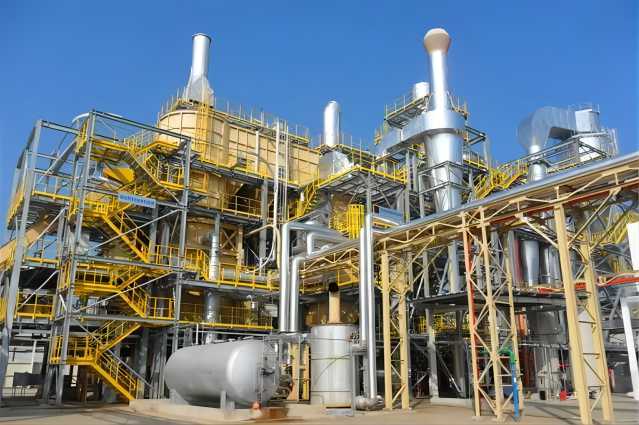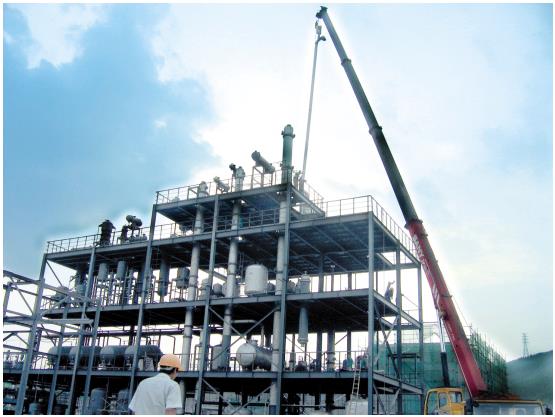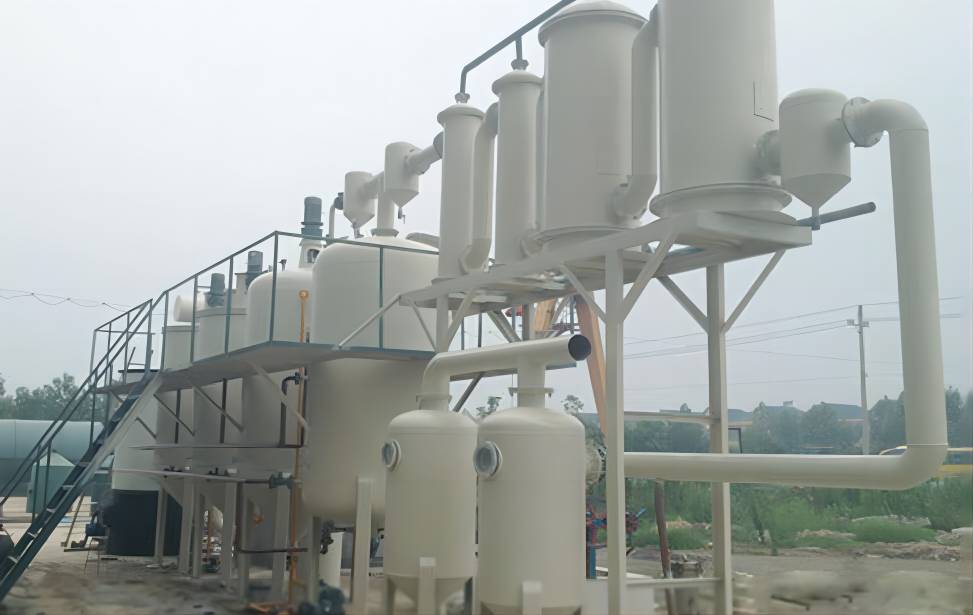Engine Oil Refining Machines vs. Waste Oil Distillation Plants: Navigating the World of Oil Refining
In the realm of oil processing, two distinct yet complementary technologies reign supreme: engine oil refining machines and waste oil distillation plants. While both serve the crucial purpose of transforming crude oil into usable products, their distinct approaches and end-products cater to specific needs within the oil industry and environmental sustainability efforts.

Engine Oil Refining Machines: Reviving the Life of Used Engine Oil
Engine oil refining machines, as their name suggests, are specifically designed to rejuvenate used engine oil. These machines embark on a multi-stage process, beginning with pre-treatment, where impurities and contaminants are meticulously removed from the spent oil. This step ensures that only the purest form of used oil enters the subsequent stages.
Next, distillation takes center stage, meticulously separating the used oil into distinct fractions based on their boiling points. This intricate process yields base oils, the foundational components of lubricating oils, which are then further refined through solvent extraction. This technique employs specialized solvents to extract any remaining impurities, ensuring the base oils achieve the desired level of purity.
The final stage of engine oil refining, hydrotreating, involves the utilization of hydrogen to effectively eliminate sulfur and other undesirable impurities. This meticulous process elevates the quality of the base oils, ensuring they meet stringent industry standards.
The culmination of these refining steps is the creation of high-quality lubricating oils, the lifeblood of modern machinery. These refined oils not only enhance the performance and longevity of engines but also play a pivotal role in reducing friction and wear, thereby extending the lifespan of machinery.

Waste Oil Distillation Plants: Transforming Waste into Value
While engine oil refining machines focus on restoring the value of used engine oil, waste oil distillation plants extend their reach to a broader spectrum of waste oils, including industrial oils and vegetable oils. These plants harness the power of pyrolysis, a thermal decomposition process that breaks down waste oil into liquid, gas, and solid fractions.
The liquid fraction, primarily composed of fuel oil, can serve as a substitute for conventional fuel oil, offering a sustainable alternative to fossil fuels. Asphalt, another valuable product of waste oil distillation, finds its application in road construction and paving projects, contributing to infrastructure development.
Charcoal, a versatile byproduct of the distillation process, can be utilized as a fuel source or for industrial applications, such as water filtration and activated carbon production. Additionally, the gas fraction can be processed further and employed as a fuel or for other industrial purposes.
Comparative Analysis: Unveiling the Distinctions
Engine oil refining machines and waste oil distillation plants, though sharing the common goal of transforming oil, exhibit notable differences in their feedstock, products, technology, and applications.
- Feedstock: Engine oil refining machines exclusively process used engine oil, while waste oil distillation plants accept a wider range of waste oils, encompassing used engine oil, industrial oils, and vegetable oils, offering greater versatility in feedstock selection.
- Products: Engine oil refining machines produce high-quality lubricating oils, catering specifically to the lubrication needs of machinery. In contrast, waste oil distillation plants yield a diverse range of products, including fuel oil, asphalt, charcoal, and gas, catering to a broader spectrum of applications.
- Technology: Engine oil refining machines employ a combination of distillation, solvent extraction, and hydrotreating, ensuring thorough purification and the production of high-grade lubricating oils. Waste oil distillation plants, on the other hand, primarily rely on pyrolysis, a thermal decomposition process that breaks down waste oil into various fractions.
- Applications: Engine oil refining machines are primarily utilized for producing lubricating oils, catering to the lubrication requirements of various machinery and equipment. Waste oil distillation plants, conversely, serve the dual purpose of converting waste oil into usable products and reducing waste disposal costs, promoting environmental sustainability.

Conclusion: Selecting the Right Fit for Specific Needs
The choice between an engine oil refining machine and a waste oil distillation plant hinges on the specific needs and objectives of the user. Engine oil refining machines are the preferred choice for producing high-quality lubricating oils, while waste oil distillation plants are better suited for converting waste oil into a broader range of usable products and reducing waste disposal costs.
Ultimately, both engine oil refining machines and waste oil distillation plants play crucial roles in the oil industry, contributing to the transformation of crude oil into valuable products while addressing environmental concerns associated with waste oil disposal.







